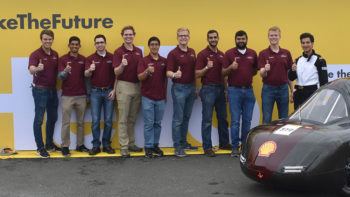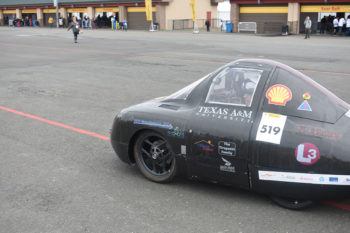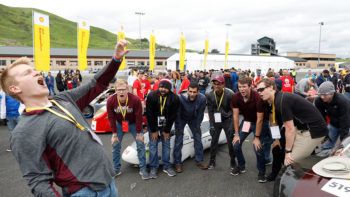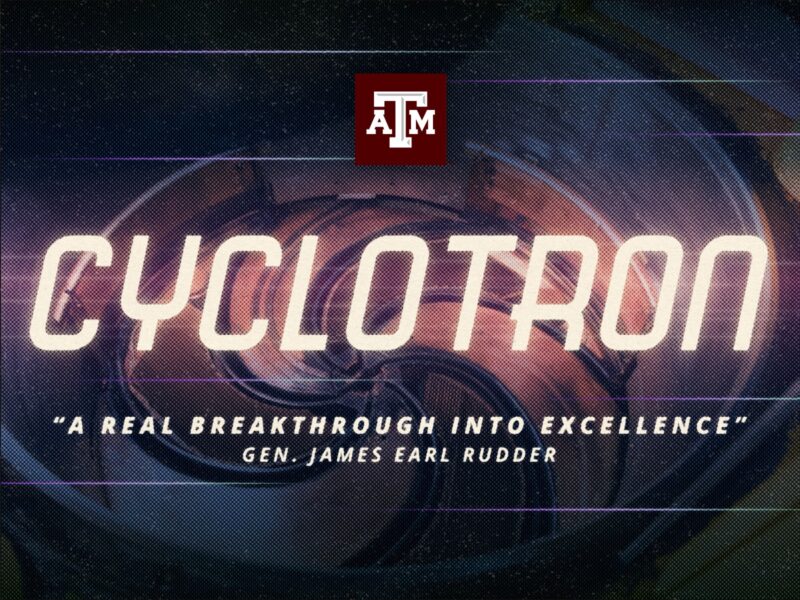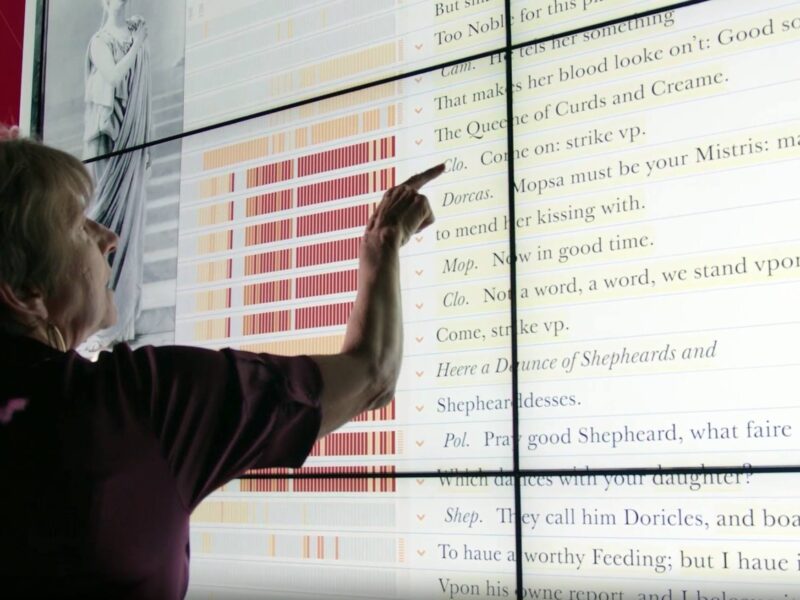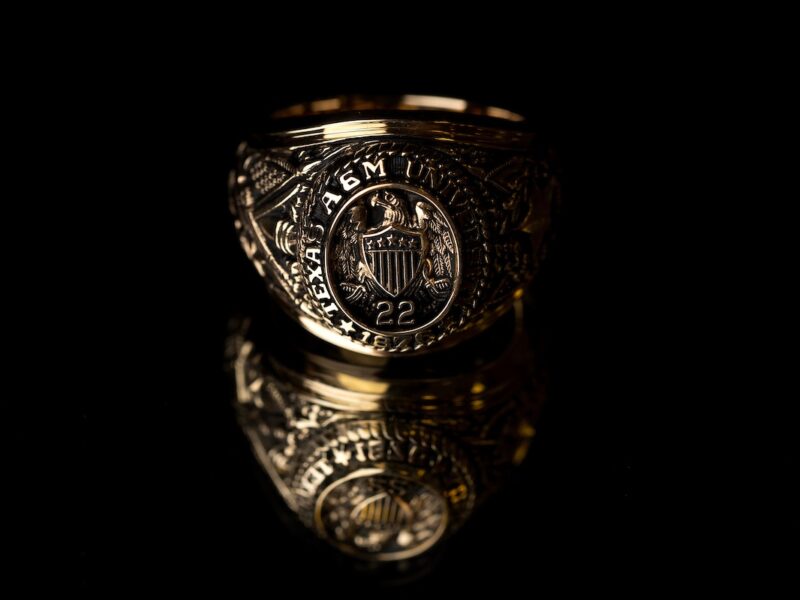Aggie Engineers Pursue Ultra-Efficient Cars At International Shell Competition
Texas A&M University senior design students are doing their part to move automobile energy efficiency into the future alongside their peers from around the world.
A team of 10 graduating mechanical engineering seniors from Texas A&M won the prize for off-track safety at the annual Shell Eco-marathon energy efficiency competition in Sonoma, California. It was the first time a team from Texas A&M has competed.
The global competition — which began in 1939 as an informal competition between Shell scientists to see who could get a car to run furthest on one gallon of fuel — aims to give high school and university students the opportunity to participate in a collaborative, hands-on experience pursuing the development of highly energy-efficient vehicles.
The Texas A&M team, led by project manager Vishal Modi, competed in the Urban Concept and Internal Combustion Engine categories at the competition with a goal of developing a vehicle that could average hundreds of miles per gallon and featured four wheels, space for a driver, a luggage compartment and other common car components such as headlights, brake lights, turn indicators, hazards, a horn and a windshield.
Team member Jacob Hartzer said he and his peers were inspired by the competition’s goal of directing the brightest young minds from around the planet toward making an impact on some of the challenges facing the future of energy consumption among vehicles.
“This project serves to propel technology and innovation in the automobile industry, technology that could impact the daily lives of billions of people,” Hartzer said. “On a much smaller scale, this project introduces students to an extremely complex and comprehensive project. The experience gained by members of the team far exceeded the standard senior design project and will likely be built off of in our careers.”
In addition to Modi and Hartzer, the team included Grayson Aldrich, Larsen Dempsey, Colin Michels, Connor Michels, Stephen Lara-Ramirez, Vikas Rao, Christian Rivera and Ziad Wardeh.
Ultimately, the team’s win for the off-track safety award was a testament to their dedication to the project with no previous car to improve on like many of their peers at the competition.
“We were able to build a car from scratch in less than seven months and clear technical inspection, a feat many first-year teams are not able to accomplish,” Modi said. “The judges were overwhelmed with the quality of the team’s safety report submission and display of safety concern at the competition itself.”
Modi said he and his senior design teammates were proud of what they accomplished as a first-year team and looked forward to seeing where their successors will take the design moving forward.
“Everyone from this year’s team will be graduating, however, we do intend on having a team compete next year with new students,” Modi said. “This will ideally turn into an annual senior design project with students making improvements to the car each year to make the team more competitive. As a team this year we were hoping to lay the foundation for future teams to compete for many years and soon become a major competitor in the Shell Eco-marathon.”
This article by Steve Kuhlmann originally appeared on the College of Engineering website.
